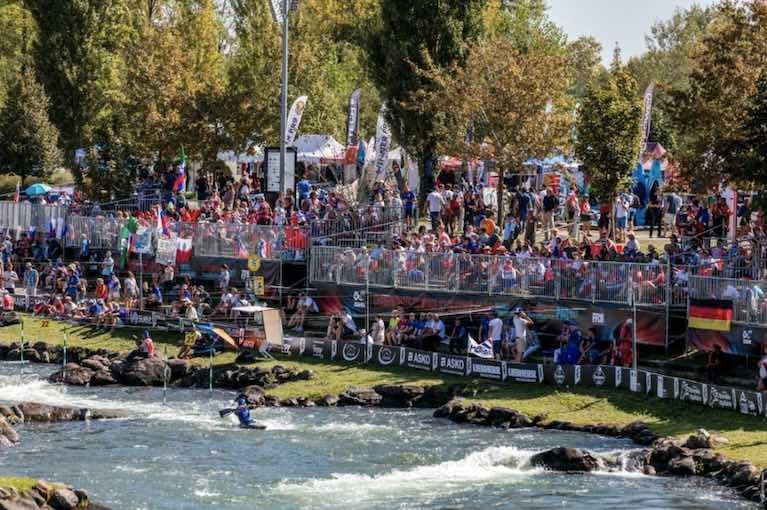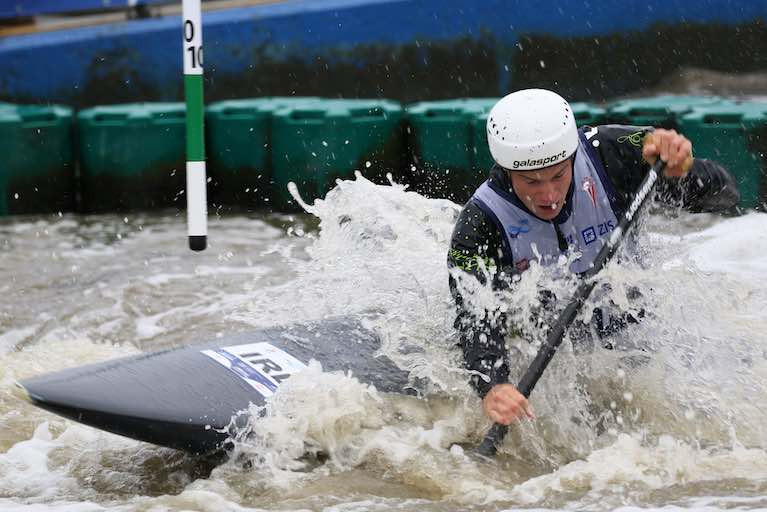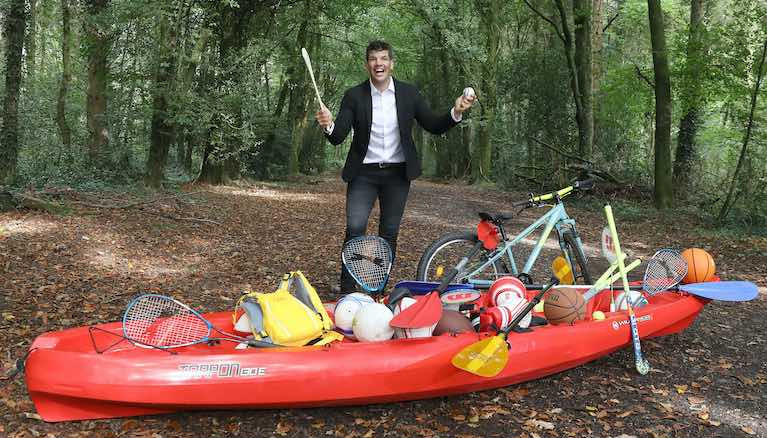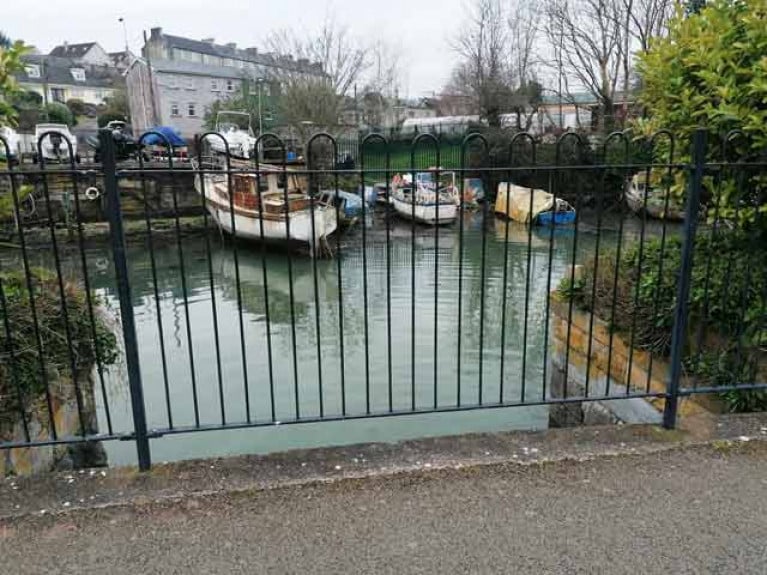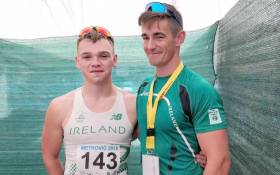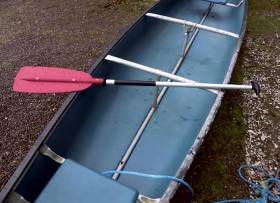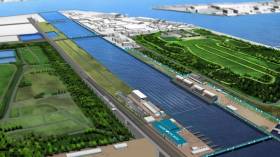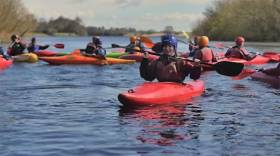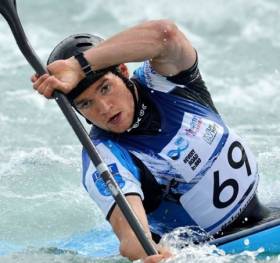Displaying items by tag: canoeing
Tokyo 2021 Confirmed Canoe Slalom Olympian Liam Jegou In World Cup Race This Weekend
This weekend will see Canoe Slalom athletes compete behind closed doors at a World Cup race in Pau, France, where London 2012 Olympian Hannah Craig, and Tokyo 2021 confirmed Olympian Liam Jegou will both be racing for Ireland.
After the massive COVID disruptions for the International canoe slalom community this season, getting the opportunity to once again paddle on the magnificent Pau course will be a moment to savour this weekend and a return to the international circuit.
A few days after having hosted the selections for the composition of the French team for the next Olympic Games (from October 7 to 11), the White Water Stadium will once again be the stage of spectacular women’s and men’s races in slalom and extreme slalom.
Canoe Slalom
Canoe Slalom is an Olympic discipline which consists in doing a wild water course almost 400 metres in length as quickly as possible whilst respecting a mandatory route, indicated by gates (18 to 25 maximum). There are two types of gate:
- Green gates: passed through heading downstream
- Red gates: negotiated heading upstream
Gates which the canoer touches, or those that are not crossed, are counted as penalties, which add to the finishing time of the course (2 seconds for a touch, 50 seconds for a missed gate).
International categories
- Men’s kayak single (MK1) and women’s kayak single (WK1)
- Men’s canoe single (MC1) and women’s canoe single (WC1)
- Men’s Extreme Canoe Slalom (MCSLX) and Women’s Extreme Canoe Slalom (WCSLX)
Courses involving team events with three boats also exist.
Canoe Slalom is practised on more or less complicated whitewater courses depending on the level of the competition, with a qualifying phase of two rounds followed by a semi-final and a final round.
Team Ireland is off to a great start at the 2020 Junior & U23 Canoe Slalom European Championships. Held in Krakow, Poland the championships are running from 1st-4th of October.
Day one of racing saw the only Irish competitor in the C1 men category, Robert Hendrick, get the momentum going for the team, putting in an excellent run to qualify through to the semi-final in 7th place.
To continue the success, today the K1 Men U23 team, consisting of Noel Hendrick and Alistair McCreey, both qualified through to Sunday's semi-final. Noel putting in a strong performance to finish 17th in a very competitive race.
This is a fantastic start to the competition for Canoeing Ireland to see 3 of the 4 athletes competition through to the semi-final. Continuing the great run of form the team is seeing in recent years.
Robert Hendrick race on Saturday morning in the C1 Men semi-final, with Noel Hendrick and Alistair McCreey racing on Sunday in the K1 Men.
New Support for Sport Initiative Launched By Texaco
Texaco has launched a support for sport initiative which sets aside a fund of €130,000 for distribution to sports clubs on a twenty-six, county-by-county basis, with successful applicants receiving €5,000 each.
At a time when many sports clubs may be experiencing financial strain, the initiative is one that Valero hopes will recognise the important contribution that sports clubs make to communities and throughout Irish society as a whole.
Open to sports clubs across the 26-counties of Ireland – irrespective of sporting discipline, size, membership, age, cultural appeal or gender – it is expected to attract all whose activities, goals and ambitions can, in the view of adjudicators, be materially advanced through the receipt and proper use of funding.
Speaking at the launch of the Texaco Support for Sport initiative, James Twohig, Director of Ireland Operations, Valero Energy (Ireland) Limited, described Irish sports clubs as a unifying element and a focal point for good in our communities. “In our cities, towns and villages, sports clubs are the magnets to which so many of us are drawn, homes-from-home where we meet and enjoy the friendship and camaraderie that sport offers and that all members and supporters share,” he said.
“By offering a new and innovative route to funding, we believe that the Texaco Support for Sport initiative will help uphold the unique values and characteristics that countless numbers of dedicated club members work so hard to preserve, whilst giving new expression to the cherished relationship that exists between the Texaco brand and generations of Irish sports enthusiasts,” James Twohig added.
Adjudication
Leading the adjudication process will be Texaco Support for Sport ambassador, acclaimed broadcaster and former Irish rugby international, Donncha O’Callaghan. “From my knowledge of sports clubs, gained at junior, senior and international level, I know how beneficial the Texaco Support for Sport initiative will be by bringing a much-needed benefit to clubs when it is least expected. Now more than ever, our clubs and volunteers need our support. I am really looking forward to reviewing the online applications, which provides clubs with the opportunity to showcase their importance to their local communities, and then seeing the recipients enjoy the benefit of this great initiative,” he added.
Application
Sports clubs can apply for funding from the Texaco Support for Sport from the 1 October 2020, the only requirement being that they be properly constituted and hold a valid Games & Sports Number (GS Number) issued by the Office of the Revenue Commissioners.
Those wishing to apply are invited to submit full details of their sporting activity, the purpose for which the funding is sought and the use to which it will be put. Full details of the scheme and its operation - together with registration, application, validation, adjudication and terms and conditions - are available to view at www.TexacoSupportforSport.com
Closing date for applications is the 31 December 2020 with adjudication taking place in January 2021.
Sailing & Its Widespread Opportunities Should Be Noted
Walking along the riverside in Cork Harbour in the past few days of good weather the harbour waters looked inviting, but as I thought of the pleasure of having the sails up, helm in hand, boat moving through the water, the sound of a bow wave ... the emptiness of the harbour waters told another tale… Along the river walk, I saw boats still lying fenced in.
While Irish Sailing negotiated the difficulties of a return to the water and drafted a plan for discussion with clubs, I pondered over why canoeing had been named as the only waterborne sport included in the initial suggestions for a return of watersports.
So I pursued that with a ‘contact’ of mine, as journalists are wont to have, within the Department of Transport, Tourism and Sport. That single-handed sailing was not mentioned surprised me. My ‘source’ told me that canoeing had been considered because it was “a safe, individual sport, hence social distancing would not be a problem.”
So, why not single-handed sailing – Lasers, Toppers, Optimists – even giving younger sailors a chance to get on the water … The response was that ‘crewed yachts’ had been the focus of concern, where ‘social distancing’ could not be observed…
Now, the core of deciding to go afloat in sailing is based on a combination of self-assessment - of safety, responsibility and risk and that has been put forward by Irish Sailing. I understand the problems of ‘close quarters’ aboard a racing or cruising yacht. As the national sailing authority has suggested, however, what about enabling double-handed sailing, households, family sailing, solo sailing. They should surely be considered, otherwise, a season of little opportunity is ahead.
"overall decisions about local sailing are on hold depending upon what arises from Irish Sailing’s updated plan"
From clubs around the South this week the only positive indicator was that the annual Cobh-to-Blackrock Race, always a well-patronised event, has the best prospect of going ahead because it is not scheduled until September. Decisions are awaited in regard to Glandore Classic Boats in July, but the present uncertainty may affect overseas entrants. Calves Week is still scheduled for August, but overall decisions about local sailing are on hold depending upon what arises from Irish Sailing’s updated plan.
Chief Executive Harry Hermon told me that “the anticipation is that we will be able to go afloat to some degree in Phase 1 of restrictions.”
Hopefully, that will happen but, while not being critical of canoeing as a sport, I’d like to see to more recognition from the Department of Sport of the strong support for sailing and its widespread opportunities.
Listen to the podcast below:
Irish Canoeing Team off to Sprint World Cup
Jenny Egan and Ronan Foley will begin their campaign to qualify for next year’s Tokyo Olympics at the opening World Cup Canoe competition in Poznan, Poland starting on Thursday, May 23.
In June last year, Egan, from the Salmon Leap club in Leixlip, Co Kildare, won the 5000m at the World Cup round in Portugal. In a brilliant season, she went on to take bronze at the World Championships in Portugal two months later, making her the first Irish paddler ever to take a medal at this level.
With sights set on Olympic qualification, Egan will compete in the Olympic distances of 200m and 500m as well as the 5000m this season.
Her first opportunity to qualify for Tokyo 2020 will come at the World Championships in Szeged, Hungary from August 21-24 and having missed out on both London 2012 and Rio 2016 by a single place, Egan hopes it will be third time lucky.
“The top five at the World Championships this year will go to the Olympics. Then next year, there's another chance to qualify at the European continental qualifiers. Although it's one of the hardest sports to qualify in for the Olympics, I just have to give it my best shot and, hopefully, I'll make it,” she says.
After winning the junior race at the European Marathon Canoeing Championships in Metkovic, Croatia last season as well as World Cup gold, Ronan Foley, who is from Kilcullen, moves into the senior ranks this season, although he will also continue to compete at U23 level. He will take on the men’s Olympic distance of 1000m as well as the 500m and 5000m this season.
Paracanoeist Pat O’Leary, who is from Cork but based in Moycullen, Co Galway, will compete over 200m at the ECA European Championships in Poznan taking place just before the World Cup on May 21/22. O’Leary competed at the Rio Paralympics - the first Irish padder ever to qualify.
Also selected for the sprint team are Barry Watkins of Salmon Leap Canoe Club (1000m, 5000m); Ryan O’Connor, also Salmon Leap (U23 and senior 200m), and Matthew McCartney of Celbridge Paddlers (junior 500m, 1000m).
After Poznan, the team travels to Germany for the World Cup 2 event in Duisberg from May 30.
Canoeing Key Dates
May 21-22 – European Paracanoe Championships, Poznan, Poland
May 23-26 - World Cup 1, Poznan, Poland
May 30- June 2 – World Cup 2, Duisberg, Germany
August 1-4 – World Junior and U23 Sprint Championships, Pitesti, Romania
August 21-25 – World Championships, Szeged, Hungary
Jenny Egan Qualifies for World Cup Final in Portugal
#Canoeing: Jenny Egan qualified for the A Final of the women’s K1 200 metres at the canoe sprint World Cup in Montemor-O-Velho in Portugal today. The Ireland paddler finished third in her semi-final to take the ninth and final place. On Friday, Egan just missed out on qualifying for the final of the K1 500, taking fourth in the semi-final. She will also compete in the K1 5,000 on Sunday.
Canoe Sprint World Cup, Montemor-O-Velho, Portugal (Irish interest)
Women
K1 500 – Heat One: 5 Ireland (J Egan) 1:56.116. Semi-Final (Three to A Final): 4 Egan 1:55.512.
K1 200 – Heat One: 6 Ireland (J Egan) 45.536. Semi-Final (Three to A Final): 3 Egan 42.103.
Basic Safety Measures Not Taken Ahead Of Kenmare Canoe Drowning - MCIB
#MCIB - Basic water safety precautions were not taken before a canoe capsize incident that led to the drowning of a man off Kenmare almost a year ago.
That’s the main conclusion of the official report into the tragedy in Kenmare Bay in which local man Bill Topham died, as previously reported on Afloat.ie.
Topham had been canoeing to islands in Kenmare Bay with a friend for a duck shoot when their two-man vessel overturned in high winds on the afternoon of 31 January 2016.
The Marine Casualty Investigation Board report identified that neither passenger on the canoe was wearing a personal flotation device.
It also concluded that their decision to undertake their trip amid adverse weather conditions with a fully laden canoe, including two boisterous dogs, greatly increased the “inevitable element of natural risk” involved.
The full MCIB report into the incident is available to download below.
Rowing & Canoeing Look Set To Stay In Tokyo For 2020 Games
#Tokyo2020 - Irish Olympic rowing and canoeing hopefuls look set to stay in Japan’s capital for the 2020 Games as plans to move their venue to a city 400km north are likely to be abandoned.
As Inside the Games reports, Tokyo 2020 organisers are expected to downscale their costly original plans for the Sea Forest in Tokyo Bay instead of moving to the city of Tome in Miyagi Prefecture.
Rowing and canoe sprint were among a number of sports that faced the prospect of their venues being relocated Tokyo to surrounding cities as city officials look to trim rising costs even three-and-a-half years out from the Games.
Inside the Games has more on the story HERE.
Last Chance To Join In Blueway 10k Challenge This Weekend
#Blueway10k - Places are still open for experienced kayakers to sign up for this weekend's Blueway 10k Challenge, as the Nenagh Guardian reports.
Organised by Canoeing Ireland and the Canoe Association of Northern Ireland with Waterways Ireland, the nine events taking place simultaneously across the island this Saturday 20 August will see novice paddlers put their skills developed over the last 12 weeks of training to the test.
As previously reported on Afloat.ie, the initiative aims to take the hassle out of kayaking or canoeing on Ireland's inland waterways, showing that access to watersports is quicker and easier than many people think.
Three-time Irish Olympian Eoin Rheinisch gives an overview of the final week of training ahead of this weekend's challenge:
Curtis So Close on First Run at World Championships
#Canoeing: Under-23 competitor Sam Curtis came frustratingly close to direct qualification on his first run at the canoe slalom World Championships in Krakow, Poland, this morning. The Irish paddler, competing in a K1, completed the course in 84.08 seconds, but he touched the second last gate and was given a two-second penalty. It pushed him above the direct qualification mark. Eoin Teague set a time of of 89.71, including four seconds in penalties for touches on gates two and 14. However, he dropped out of contention in this run when he was retrospectively ajudged to have missed gate two and given a 50-second penalty. Noel Hendrick was also down the rankings. He was penalised 50 seconds for missing gate 13.
Canoe Slalom World Championships, Under-23 and Junior, Krakow, Poland (Irish interest; selected results)
Men
Under-23 K1 (racing kayak) – First Run (Top 30 Qualify): 35 S Curtis 86.08; 69 E Teague 137.71; 70 N Hendrick 138.45.



























